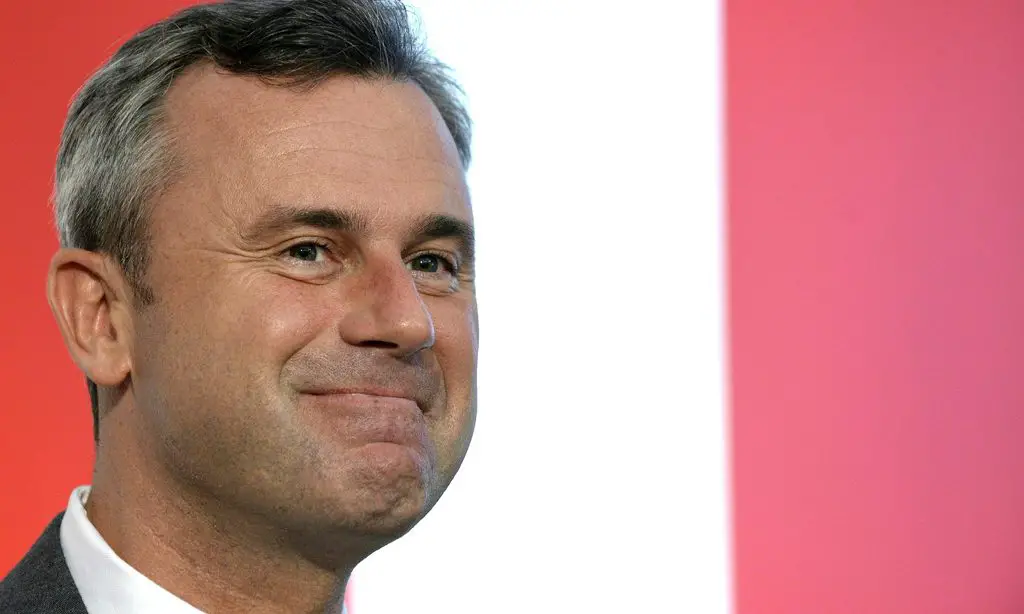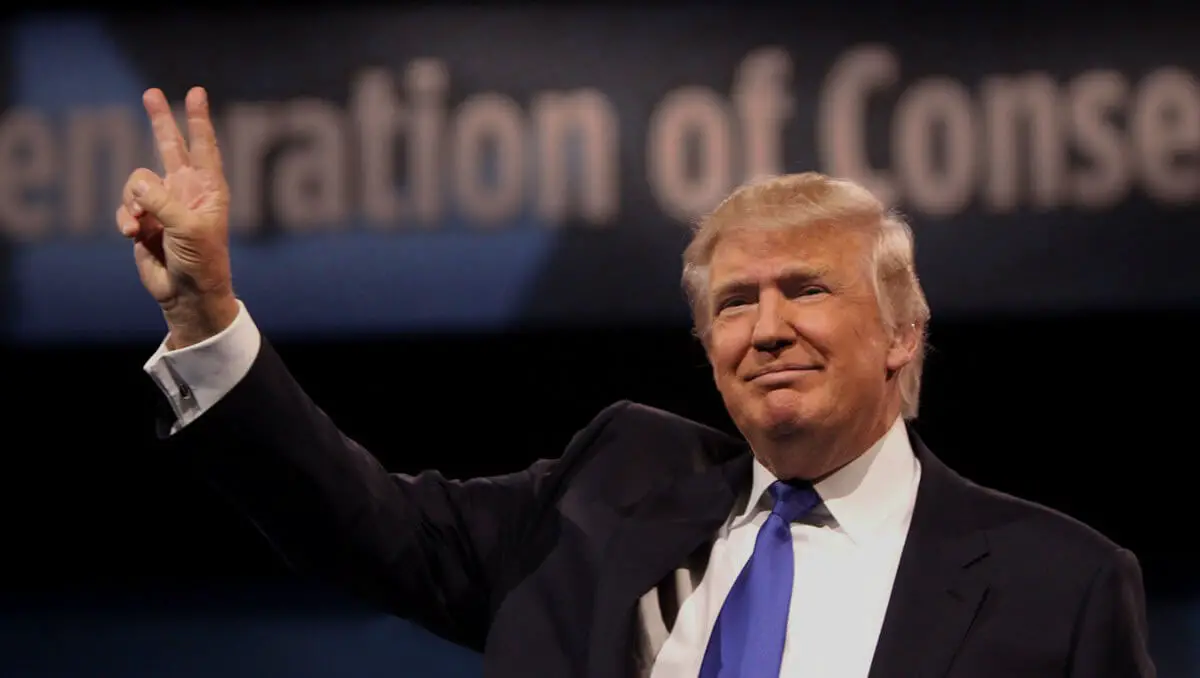A New Breed of Dangerous
In America and across Western Europe, a new political movement based on xenophobia, racism, exclusion and violence is gaining power.
By Tim Philbin, College of the Holy Cross
In the current election cycle, the only thing that everyone seems to agree upon is that the 2016 presidential election will be one for the history books.
The primary race held surprises at every turn: the unexpected popularity of Bernie Sanders; the panoply of republican candidates; but most of all, the brash, arrogant strongman that is Donald Trump.
Trump’s popularity has been one of the most unanticipated and difficult to explain phenomena of the entire race. It simply doesn’t add up: he puts his foot in his mouth at every available opportunity with blatant racism, unabashed self-contradiction and infeasible policy proposals, and yet he seems to command a nearly inexhaustible supply of fanatical supporters. They don’t need hard facts, well-reasoned arguments or carefully crafted policies.
They seek boldness, strength and arrogance, and Trump projects all three.
In some ways, the most interesting aspect of the Trump phenomenon is the comparison between his current presidential run and his short-lived 2012 bid for the republican nomination. As he is wont to do, Trump spat out unsubstantiated blather about President Obama’s birth certificate and was summarily and rightly derided into submission. Four years later, he encountered hardly any serious competition for the republican nomination. Something changed in the interim in the minds of American voters, something made the electorate susceptible to Trump’s demagoguery.
Somewhere along the line, fear began to cloud the nation’s judgment. Americans have allowed their fears about the nation’s security, its changing demographics and its apparent impotence, to control us. To assuage the fear, voters picked a fear mongering political outsider who propagates the fantasy that he can “negotiate” our problems away.
Though I would like to think that this phenomenon has been limited to this side of the Atlantic, the unfortunate truth is that it has not. With Britain’s radically anti-immigrant and economically inadvisable split from the European Union, and a general rise in anti-immigrant sentiment in Europe as a result of the refugee crisis, ultra-conservative populism is experiencing an intercontinental renaissance. This is a movement that I will refer to from here on out as the New Right, and these are its characteristics.
1. Nationalism
In his essay “Notes on Nationalism,” George Orwell defined nationalism as “the habit of identifying oneself with a single nation or other unit, placing it beyond good and evil and recognizing no other duty than that of advancing its interests.” If you’re familiar with either the Trump campaign or the Brexit movement, then this form of nationalism should seem familiar.
Trump is going to “Make America Great Again.” He opposes the Trans-Pacific Partnership because it would allow other countries’ economies to benefit in addition to America’s. His foreign policy is consistently “America first and screw everyone else” (which is obviously a great way to make friends).
Britain’s recent vote to leave the EU is another example of the same nationalism. Despite the devastating effects on the world economy (and the British economy, for that matter), the United Kingdom decided to leave the EU. Nonetheless, Brexit supporters celebrated their hollow victory with vigor. Nigel Farage, leader of the United Kingdom Independence Party, said that June 23rd (the day of the referendum) should be commemorated as the UK’s “Independence Day.”
 It is no coincidence that Brexiters used the twitter hashtag “#takecontrol.” This was not a carefully reasoned political maneuver, but rather a radically selfish, nationalistic one.
It is no coincidence that Brexiters used the twitter hashtag “#takecontrol.” This was not a carefully reasoned political maneuver, but rather a radically selfish, nationalistic one.
The truth is that the members of the New Right, irrespective of their national identity, share a common maxim: my country is always right no matter what, and we don’t need anyone else to tell us what to do. As any student of history will tell you that it was this kind of pigheaded unwillingness to negotiate that led to the World Wars. It is not a mindset that anyone should wish to revive.
2. Xenophobia
The word “xenophobia” is derived from the greek words xenos, meaning strange or foreign, and phobos, meaning fear. Therefore, the word means “fear of that which is different.” Xenophobia is a classic characteristic of the New Right. Look at Trump’s immigration policy, for example: he believes that Mexican immigrants to the Unites States are “rapists.” He wants to form a task force to deport all undocumented immigrants. Most notably, he wants to build a wall along the entire Mexican-American border to prevent illegal immigration.
Though these policies are intended to project strength and security, in reality they belie weakness and insecurity. Demographic trends indicate that by 2042, the United States will no longer be a white majority nation. The face of America is changing. Some people embrace that change, others fear it. Trump supporters fear it pathologically, leading to the explosion of xenophobia that I have termed the New Right.
Unfortunately, this trend is also observable among European nations adjusting to a massive influx of refugees from the Middle East. If you don’t believe me, watch this video of a Hungarian camerawoman kicking a little refugee girl as she runs by, or this video about a series of race-based attacks on immigrants to Sweden. Make no mistake, the pernicious disease of the New Right has spread its detestable brand of nativist xenophobia all over the Western World.
3. Political Incorrectness (Anti-Intellectualism)
In the United States, the 9/11 attack provoked a wave of justified fear among the population. However, the American people didn’t allow their fears to drive them to hatred. They worked through established channels. They trusted the government to do its job. But then, a wave of disillusionment swept across the nation as the people realized that their trust was abused, that their government had made some very serious mistakes. The CIA tortured prisoners for information, the military fought a largely useless war in Iraq and the NSA spied on us without our knowledge.
Add the 2008 financial crisis to the mix, and official channels became all but bastardized, because the government had let us down. As a result, trust in the government is at an all-time low. Congress’s approval rating is hovering around a dismal 11 percent. Rhetoric, compromise and politician are all dirty words.
Then along comes Trump, a political outsider, someone with no experience in politics whatsoever. Paradoxically, in the eyes of voters, this is one of his greatest qualifications for the presidency. This anti-intellectual, anti-establishment fervor is another essential characteristic of the New Right. Ask the average Trump supporter why he supports Trump and one of the things you are bound to hear is that he’s “not part of the establishment.”
 The mistrust of “the establishment” is also endemic to Europe. Take the recent Austrian presidential election. Norbert Hofer of Austria’s Freedom Party (which has been likened to the Nazis) lost by a mere fraction of a percent. In fact, the election was so close that the results have been annulled and a new election has been called. Consider the disturbing irony for a moment: a Nazi is dangerously close to winning the presidency of Austria (if you don’t know what I’m getting at, look up the anschluss).
The mistrust of “the establishment” is also endemic to Europe. Take the recent Austrian presidential election. Norbert Hofer of Austria’s Freedom Party (which has been likened to the Nazis) lost by a mere fraction of a percent. In fact, the election was so close that the results have been annulled and a new election has been called. Consider the disturbing irony for a moment: a Nazi is dangerously close to winning the presidency of Austria (if you don’t know what I’m getting at, look up the anschluss).
The grip of the New Right on Western politics is already dangerously tight and ever tightening. This scares me, and it should certainly scare you. So the next time you hear some new outsider politician running for office playing to the fears of the crowd, remember this: this man, no matter how strong he may seem, is at his core a deeply insecure coward attempting to play off your fears for his personal gain. Don’t let him.

















